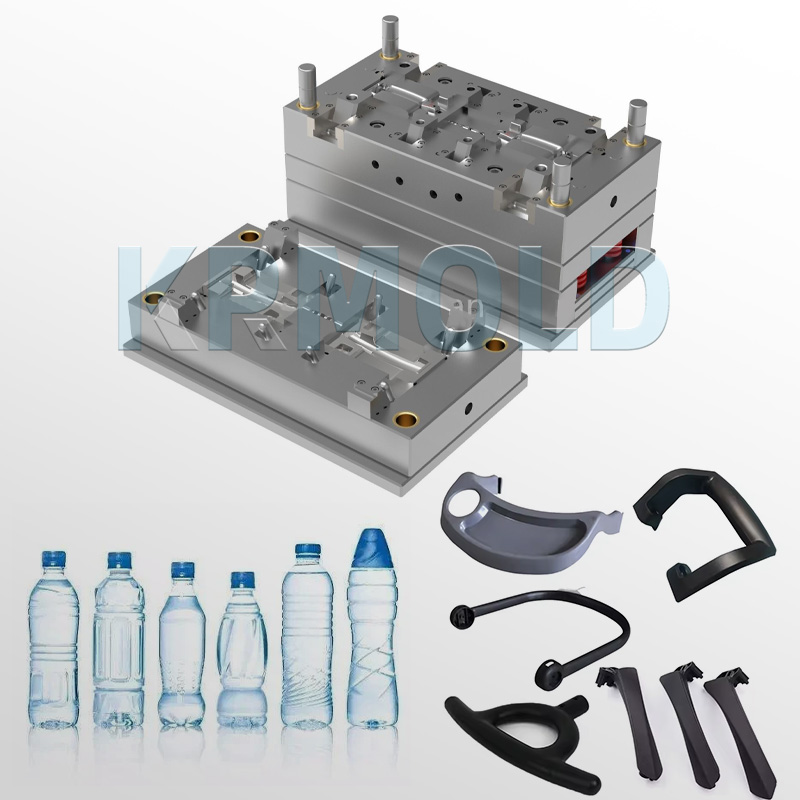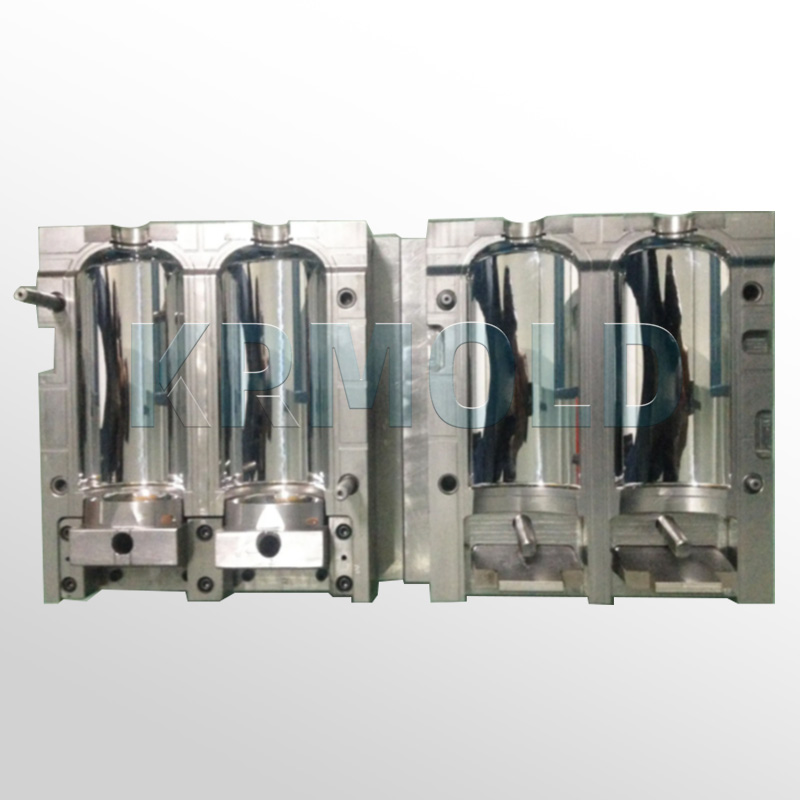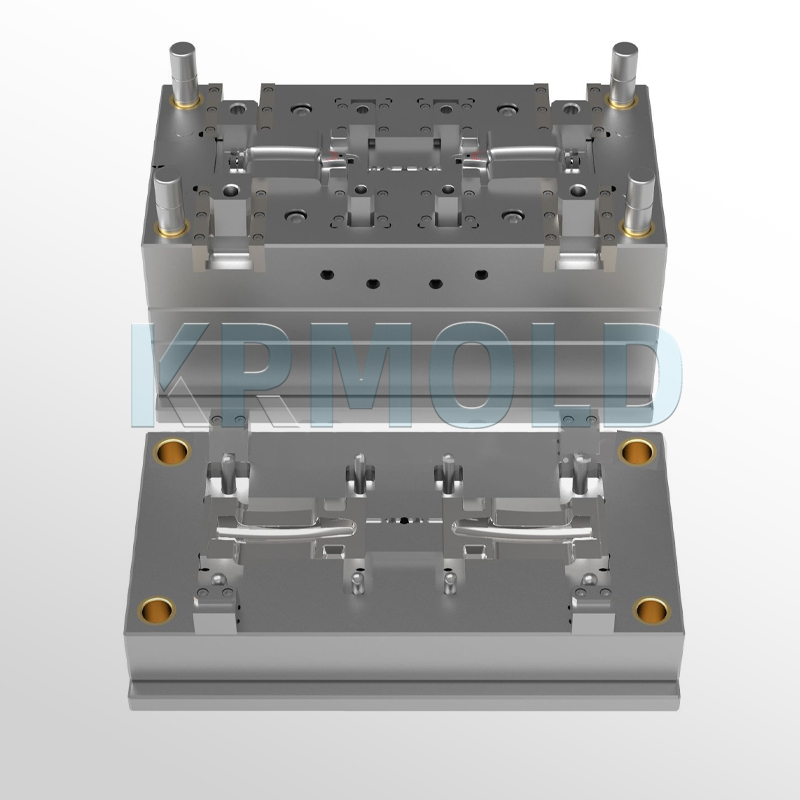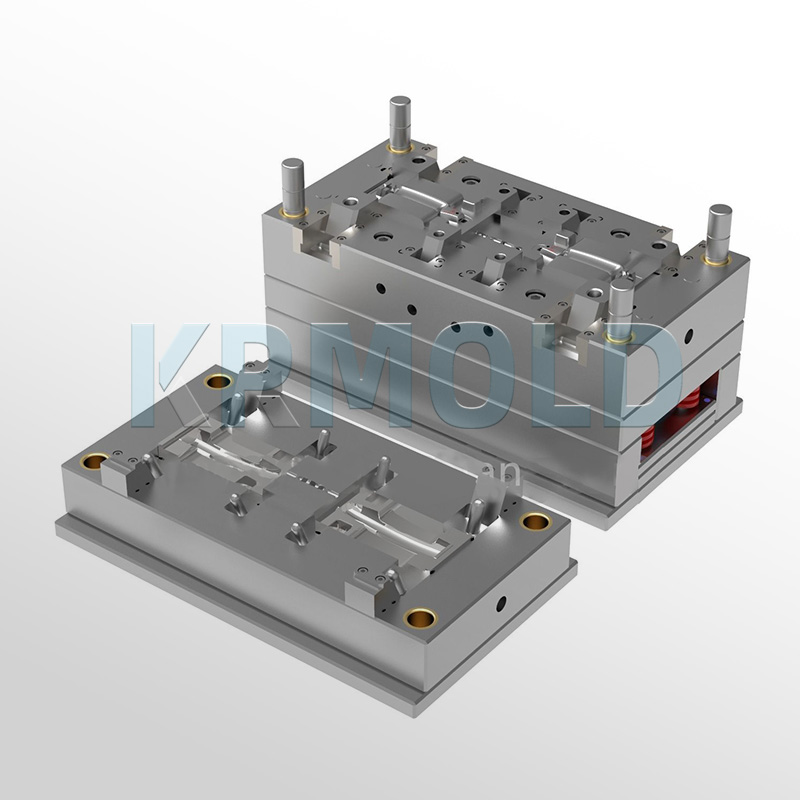
KINGREAL UNIVERSAL IND., LTD
Phone
+86-13702855825| 1 | P20 steel |
| 2 | 718H steel |
| 3 | NAK80 steel |
| 4 | H13 steel |
| 5 | S136 steel |
| 6 | 2344 steel |

Gas-assisted injection molds are an important part of gas-assisted injection molding. The choice of materials directly affects the performance, life of the gas-assisted injection molds and the quality of the final product.
This article will elaborate on the commonly used steels in gas-assisted injection molds, including their characteristics, applicable plastic types and product types, to help readers better understand this key area.
1. P20 steel
P20 steel is a pre-hardened mold steel that is widely used in the manufacture of gas-assisted injection molds with low to medium complexity and small and medium batches.
Features
P20 steel has a medium wear resistance and is suitable for ordinary engineering plastics. At the same time, it has good toughness and can withstand the impact load of small and medium-sized molds.
Applicable plastics
This steel is suitable for molds for ordinary engineering plastic products, such as ABS, PP, PE, PS, PC, etc. However, it is not suitable for glass fiber reinforced plastics and highly corrosive plastics (such as PVC) due to their easy wear characteristics.
Product type
P20 steel is suitable for the production of products that do not require high specular gloss, such as daily necessities (bottle caps, toy shells), home appliance parts, and automotive interior parts. During the gas-assisted injection molding process of these products, P20 steel can exert its excellent performance.
2. 718H steel
718H steel is an upgraded version of P20 steel. It is a pre-hardened mold steel with nickel added to optimize its purity, uniformity and comprehensive performance.
Features
718H steel has significantly improved wear resistance and is suitable for engineering plastics filled with glass fiber and minerals. Its high toughness and fatigue resistance make it very suitable for multi cavity injection molds or large plastic injection molds.
Applicable plastics
This steel is suitable for high-demand engineering plastic products, such as PA (nylon) + glass fiber (GF), PBT, PC/ABS, POM and other reinforced plastics. In addition, transparent plastics such as PC and PMMA (acrylic) also require a higher surface finish.
Product type
718H steel is suitable for precision electronic components (such as connectors, housings), automotive functional parts (such as lampshades, dashboards), and high-gloss panels of home appliances. These molds usually have complex structures or thin-wall designs to ensure the best results in gas-assisted injection molding.
3. NAK80 steel
NAK80 steel is a pre-hardened mirror mold steel designed for high gloss and high precision gas-assisted injection molds.
Features
This steel can achieve high hardness without heat treatment, and its polishing performance is excellent, making it the preferred material for manufacturing transparent parts and high gloss surface products.
Applicable plastics
NAK80 steel is suitable for high transparency and high gloss plastic products, such as PC, PMMA (acrylic), COP and transparent ABS, but not suitable for plastics containing corrosive ingredients (such as PVC, flame retardants).
Product type
Its application range includes optical components (such as camera lenses, light guide plates), cosmetic packaging (bottle caps, powder boxes) and automotive high gloss grilles/interior parts, especially for molds that require complex surface textures. These products have extremely high requirements for molds during the gas-assisted injection molding process.
4. H13 steel
H13 steel is a hot work mold steel designed for high temperature working environments with excellent heat resistance and thermal fatigue resistance.
Features
After heat treatment, H13 steel can reach a hardness of 48-52 HRC, with high toughness, suitable for high-stress mold structures.
Applicable plastics
This steel is suitable for high-temperature engineering plastic products, such as PEEK, PEI, LCP (liquid crystal polymer), PPS, etc., as well as glass fiber reinforced plastic products.
Product type
H13 steel is suitable for products with thick walls or fast cycle production, such as automobile engine hoods, battery housings and home appliance housings (such as microwave oven frames). At the same time, it is also suitable for engineering parts with high dimensional accuracy requirements, such as electronic connectors and medical devices. These applications show the superior performance of H13 steel in gas-assisted injection molding.
5. S136 steel
S136 steel is a high-chromium stainless steel mold steel, known for its excellent corrosion resistance and excellent polishability, designed for gas-assisted injection molds of high cleanliness, high gloss and corrosive plastics.
Features
After heat treatment, S136 steel can reach a hardness of 48-52 HRC, with moderate wear resistance, which can be further improved by nitriding or PVD coating.
Applicable plastics
Applicable to corrosive plastic products such as PVC, halogen-containing flame retardant materials and biodegradable plastics. At the same time, it is also suitable for highly transparent and medical-grade plastics such as PC and PMMA.
Product types
Applications of S136 steel include medical devices (such as surgical instruments, dialysis parts), food containers (bottle caps, fresh-keeping boxes) and optical lenses, especially for products that require mirror polishing. These products require extremely high quality standards in gas-assisted injection molding.
6. 2344 steel
2344 steel is a chromium-molybdenum-vanadium alloy hot work die steel with similar properties to H13 steel, designed for high temperature and high pressure conditions.
Features
After heat treatment, the hardness of 2344 steel can reach 48-52 HRC, with high hardness and impact toughness, suitable for complex mold structures.
Applicable plastics
This steel is suitable for high-temperature engineering plastics such as PEEK, PEI, LCP, PPS, etc., especially for plastics processed at high temperatures.
Product Type
2344 steel is widely used in automotive parts (such as dashboards, door panels, center consoles, etc.), electronic product housings (such as mobile phone housings, computer housings), and daily necessities (such as disposable lunch boxes, storage boxes). In these applications, 2344 steel ensures the quality and efficiency of gas-assisted injection molding.



Choosing the right steel is a crucial step in gas-assisted injection molding. Different mold steels have different performance characteristics and are suitable for different plastic types and product requirements.
Understanding the characteristics of these commonly used steels can help designers and engineers make more scientific decisions in gas-assisted injection molds design, thereby improving the production efficiency of gas-assisted injection molding and the quality of the final product. In practice, a reasonable combination of materials and processes will bring greater chances of success to gas-assisted injection molding.